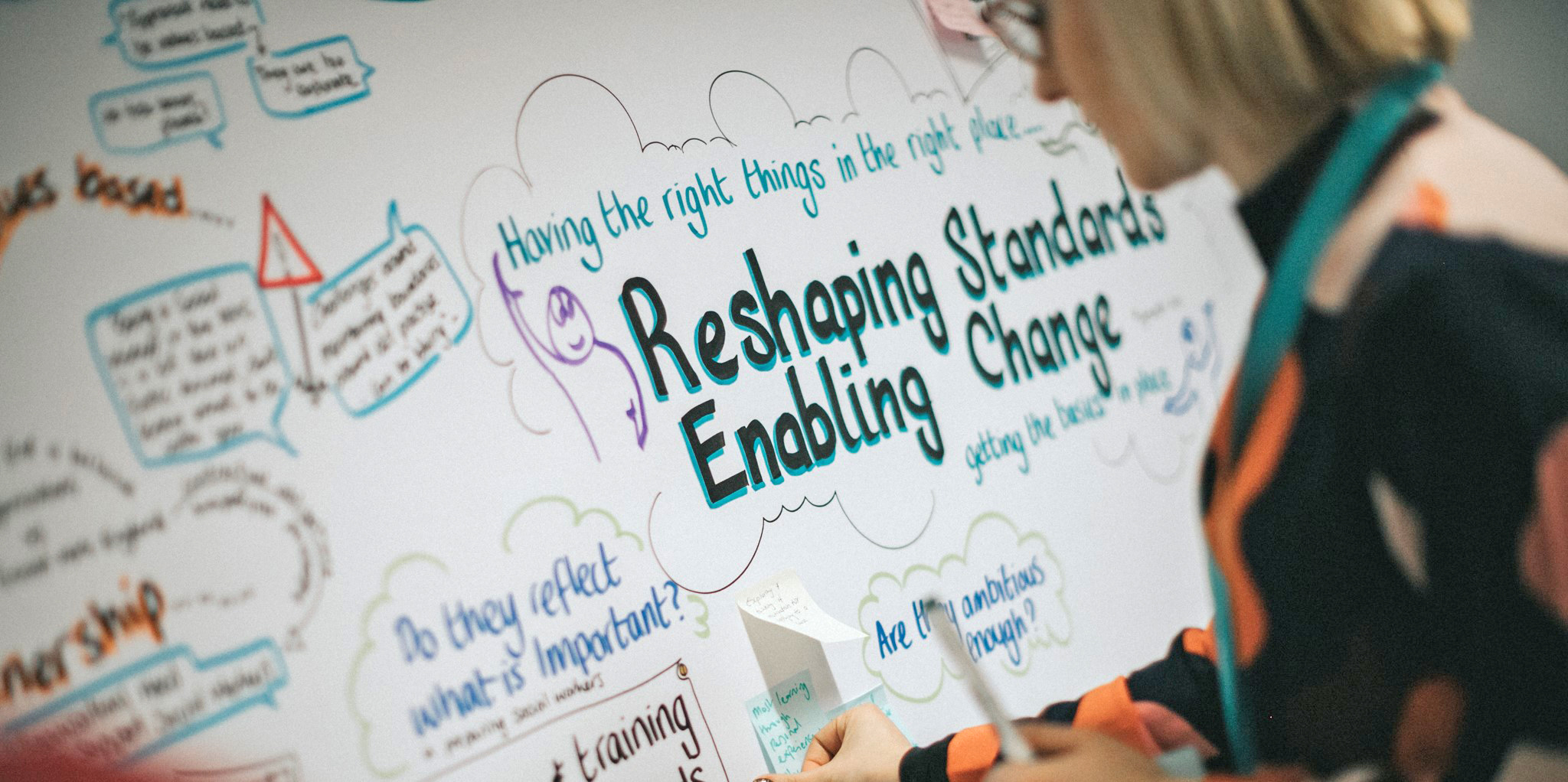Kindness, wellbeing and mindfulness embedded as a key tenet of the project – implemented on time, to budget and already delivering benefit.
It’s day one of a new ERP project, the kick-off meeting is about to start and you’re expecting the worst. You already know the client has limited resources, a small budget, a very aggressive timeline and you’ve heard on the grapevine that they couldn’t make the deal work with the first partner they engaged with. They want a full suite of finance, HR and payroll up and running within six months – they’ve never done an ERP project before and the sponsor has already asked, “why can’t we get this all done in four weeks?”.
It sounds like the nightmare scenario: a naive customer with unrealistic expectations and no contingency to cover all the stuff they will inevitably want and need to make it work. You’re trying to look positive but as the project lead stands up to begin the meeting, you’re braced for a list of unrealistic expectations and the start of a long slog.
To your surprise, before he talks about requirements, functionality, user experience, project management, deadlines, change control or documentation – the session starts with mindfulness and wellbeing analysis. Rather than setting milestones for when each module will go-live, the first priority is to measure and protect the health and happiness of all those working on the project, including the implementation partner team.
Hard-nosed ERP professionals will struggle to recognise this scenario and many will wonder if it’s even possible to deliver an ERP project without the usual stresses, strains and threats that have been synonymous with the industry for decades.
Guy Oliver led the programme from Social Work England (SWE) and has many years of experience delivering large scale ERP projects at places like Rolls-Royce. He told me it took a little getting used to at the start and his previous experiences with ERP had been very different to those at Social Work England.
“I’ve delivered lots of big ERP projects and they are always very stressful and challenging. I’ve come from a background where people were put under a lot of pressure and got the sack if they didn’t deliver or fell short of the sponsor’s expectation. Social Work England created a completely different environment for the project team – a culture that was set by our CEO from the very start – most of the team hadn’t done ERP before so they weren’t damaged by previous bad experiences and that allowed us to build the project values on a blank canvas.”
Before I get too deeply into the wellbeing narrative, it’s important to fix something to the top of page one in this story. SWE’s project wasn’t a soft exercise where all commercial considerations were ignored for the sake of some kindness; they didn’t forgo getting the job done in favour of everybody’s feelings – this was a tough project with an aggressive timeline. From a relatively low base in terms of knowledge and experience, SWE implemented a coherent ERP solution which covered finance, procurement, contracts, HR, payroll and recruitment in under six months. By any measure this project has been a huge success and is already delivering the benefits on which it was predicated.

Our discussions started with Unit4 and Embridge and it was like night and day. We immediately felt like they understood us and we just clicked. Guy Oliver
Selection process
SWE used a government procurement framework to evaluate the potential ERP solutions and ultimately selected Unit4 – but it wasn’t their first pick. SWE originally selected TechnologyOne as their preferred choice but were unable to reach a commercial agreement with the vendor for a variety of reasons.
Oliver said: “We chose TechnologyOne because we thought it was a good fit, but it became clear quite early on that we were going to struggle to find a way to make it work. Our organisation is young and relatively immature and once we started getting into negotiations we felt that it wasn’t a good cultural fit for us. Our discussions started with Unit4 and Embridge and it was like night and day. We immediately felt like they understood us and we just clicked. I have to say though, I was still a little sceptical and I warned my team not to be seduced by the Unit4 website – it looked amazing, it seemed to fit with all our values but I know the software industry is very aggressive so I told everyone to take it with a pinch of salt. My concerns were squashed pretty early on and in Unit4 and Embridge we found two partners that mirrored our values and the way we like to work.”
Contractual negotiation within ERP is a minefield – why do you think there are so many third-party agencies that exclusively specialise in helping customers mediate their terms? Make a mistake within the reams of legal jargon which set out what you will pay for, when you will pay for it and how you can use it, and you may have a long and expensive road ahead of you. Some ERP vendors have streamlined and simplified their contracts in recent years and introduced measures that are designed to give the customer flexibility (take a look at Acumatica as a great example of this) but, in most cases the paperwork for ERP licences is complex, confusing and open to interpretation.
We were relieved that we were able to agree a deal with Unit4 and Embridge that, of course, had all the right measures in place, but also gave us peace of mind that we wouldn’t have a piece of paper waved in our faces every time something changed or went off plan a little.
It’s not just the vendors that make contracting difficult – consultancies are equally guilty of loading their agreements with clauses and conditions which can stifle a project. Change control is the most obvious example where contracts are so rigid that any deviation from the initial scope can result in additional costs to resolve unforeseen issues. Of course, contracts are always at the centre of business dealings and play a vital role in creating a framework for a project. But, as Andy Bird from Inoapps notes elsewhere in this issue of ERP Today: “Where there is trust, you can have contract documents that are only a couple of pages long. There will be things that come up during the contract term that are unanticipated, either because they were not included definitively in discovery or because the business situation changes, but a systems integrator that values the relationship enough can make things work without going hat in hand looking for more budget.”
Finding an ERP partner that you can trust has to be top priority for all would-be customers and, as I comment elsewhere in my interview with de Novo Solutions, “Fee structure has been a bugbear of mine since I started writing about ERP and the industry is long overdue a shake-up of how consultancies earn their crust.”
Commenting on the contractual relationship that SWE negotiated, Oliver said: “We knew we would have ups and downs on the project, that’s to be expected. Software contracts, particularly with public sector organisations, usually tie everything down so there is no flexibility and it creates horrible relationships between the parties. We were relieved that we were able to agree a deal with Unit4 and Embridge that, of course, had all the right measures in place, but also gave us peace of mind that we wouldn’t have a piece of paper waved in our faces every time something changed or went off plan a little.”
Kind ERP
I have often pondered why ERP projects are so stressful and regularly fail to deliver a positive outcome. The fundamental nature of legacy ERP didn’t help – it was horribly complicated from a technical point of view, it always required significant customisation, it was hugely expensive and extremely time-consuming. Even on a project with a three-year timeline, everything seemed to be done in a rush – the project plan was discarded after a matter of weeks, different teams started working against each other rather than with a common goal and by the end of the project, the customer was just happy it was over irrespective of how well the solution worked.
Cloud technologies have gone a long way to remedying some of these unwanted characteristics of ERP projects. But, I do fear that many consultancies – those which have been delivering ERP for several decades – haven’t transformed their own mindset to meet the evolving needs of customers and deliver projects in a new way. The coronavirus pandemic has forced many SIs to re-evaluate their physical delivery model and that will have a long term benefit for customers and project professionals. But there is a more fundamental, underlying mindset that needs to be altered in order to bring ERP practices in line with the expectations of modern customers.
This isn’t an argument for small versus big; global powerhouse pitched against smaller nimble consultancy – I don’t think that size should have anything to do with it. In fact, given the way that the big consultancies have shifted their corporate narrative over recent years to be much more in tune with environmental and social issues, it is surprising that they are not the ones taking the lead on this.
The brutality of ERP projects must be consigned to history and customers, partners and vendors need to build relationships around trust and a new set of values. I asked Emma O’Brien, CEO at Embridge, for her thoughts on how the project had been managed, and she said: “Successful digital transformation is not just about the technology and this was recognised very early on by SWE. Ensuring equal focus on business process transformation, enabling the people change and the welfare of the teams is what made this project so successful. The combined SWE and Embridge team acted as one from the outset. We were one team, with one shared outcome. SWE have been an absolute joy to work with and supporting their transformation as an organisation in such a short timeframe has been a true honour and great example for others to follow.”

“Ensuring equal focus on business process transformation, enabling the people change and the welfare of the teams is what made this project so successful” Emma O’Brien
The project
SWE started with a three-phase project plan to deliver recruitment at the start, followed by finance in phase two, and HR and payroll at the end. The recruitment phase gained traction quickly but the teams realised they wanted to extend the scope of the original plan as they learned more about the capabilities and features within Unit4’s product. A quick decision was made to go back into discovery and rescope the recruitment requirement which would then free up the teams to tackle finance immediately. Usually this type of change is the root cause of contractual and financial issues between the customer and partner but the Embridge team agreed to meet the client’s requests within the scope of the original agreement.
Dan Chilton, director of professional services at Embridge told me that his team had to do a lot of flexing on the project but the strength of the relationship between the client-side and partner-side project managers provided a platform of trust and respect which meant they navigated bumps relatively easily. He said: “We knew the SWE team hadn’t done an ERP project before so we went into this with our eyes open. We worked very hard at the start to structure the programme to fit with the values that SWE had and we made a success of the project by being true to those values. We work with lots of public sector organisations so we are used to a fairly soft approach, but with SWE it wasn’t all just about being kind and taking things gently. There were lots of tough decisions to be made before the project started and significant challenges during the project. The characteristics of the project did make us think more deeply about how we worked with our consultants and the SWE team and ultimately we found common ground, chose collaboration over conflict and delivered an outstanding project for a very worthy customer.”
“Our staff are happy, obviously our suppliers are happy and the best thing is that people really like using the software. It looks and feels like something that you want to use. It’s intuitive, well designed and has made a massive difference to the way SWE operates in a very short space of time.”
So far, SWE has implemented all of the modules from the original scope and are now working to bring learning and development into the solution. The recruitment module which was rescoped is up and running and, according to Oliver, the solution is already yielding many of the benefits they had hoped for. He said: “Payroll has worked like a dream, internal approvals have been revolutionised and we are now paying our suppliers in less than 10 days compared to an average of over 30 days before we implemented Unit4. Our staff are happy, obviously our suppliers are happy and the best thing is that people really like using the software. It looks and feels like something that you want to use. It’s intuitive, well designed and has made a massive difference to the way SWE operates in a very short space of time.”
My Takeaways
The collaboration between SWE, Unit4 and Embridge demonstrates what is possible when the values of all parties are aligned. I do recognise that with these three organisations we have the perfect storm of complementary ideals; the customer is involved with social care, the vendor places people at the centre of their solution, and the partner is young, hungry and not weighed-down with some of the constraints of larger organisations. I mention in my opening words of this issue that it may be unrealistic to expect a global ERP programme to be able to embrace the same level of thought and consideration for those involved – but maybe I am making that excuse too easily. Why shouldn’t it be possible? I don’t expect that all customers will be able to adopt the same standards in their projects but I would urge prospective ERP buyers to give serious consideration to far more than just the technology, cost and time involved. A lot can be learned from this project and I hope to see many others taking note of those lessons and embracing a less combative, more collaborative and ultimately, much healthier way of delivering technology projects in the future.




